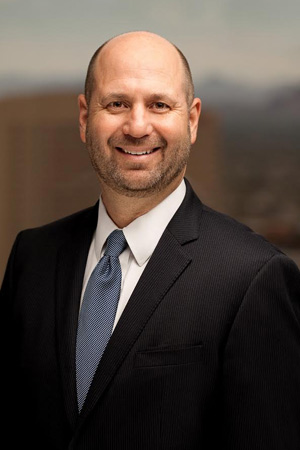
 Fadely v. Encompass
Fadely v. Encompass
Arizona Court of Appeals
June 28, 2022
JSH Attorneys: Eileen GilBride and David Cohen
In a recent decision, the Arizona Court of Appeals clarified the proper test for the existence of apparent agency, and emphasized that courts should not use a respondeat superior (vicarious liability) rationale to determine the existence of apparent agency. Applying the test to the physician-hospital context, the court ruled that a hospital was not liable to a patient under an apparent agency theory for the acts of its contract physicians where the patient signed a form explaining that the physicians were independent contractors. However, the court upheld a finding of Adult Protective Services Act liability based on the theory that the physicians and hospital engaged in an “enterprise” employed to care for the patient.
In Fadely, plaintiff underwent a spinal fusion, and was then transferred to Encompass’ in-patient rehab facility. There, plaintiff signed a form that explicitly said physicians were independent practitioners who merely treated Encompass patients. The form drew a clear line between hospital employees like nurses, and independent contractors like physicians.
At the facility, plaintiff suffered complications from the spinal fusion, and required emergency surgery to correct a spinal cord compression. The emergency surgery was performed too late, and the plaintiff never walked again. The plaintiff sued the defendant’s facility (but not the physicians) for abuse and neglect for failing to discover her compression injury sooner. After a bench trial, the trial court found the facility liable for the physicians’ conduct because either (a) the physicians were the entity’s “apparent agents,” making Encompass vicariously liable for their conduct or (b) the physicians were part of Encompass’s “enterprise” subject to liability under Arizona’s Adult Protective Services Act (APSA). The court of appeals affirmed the “enterprise” finding (and thus the judgment in pertinent part), but reversed the apparent agency finding, ruling that the trial court had confused two distinct forms of derivative liability.
Apparent Agency
On the apparent agency theory, the trial court reasoned that the physicians were Encompass’s apparent agents because plaintiff had no choice of treating physicians and looked to Encompass for treatment. This reasoning is a respondeat superior analysis. Respondeat superior applies to an employer-employee relationship, and provides that an employer is vicariously liable for its employee’s actions taken in the course and scope of their employment. But Encompass did not employ the physicians and thus a respondeat superior analysis was not appropriate.
Apparent authority hinges on principles of estoppel. An apparent agency estoppel exists only when (1) the principal “intentionally or inadvertently” has led a third party to believe an agency exists, and (2) the third party justifiably relied on the principal’s representations. Here, Encompass did not do anything to lead the plaintiff to believe the attending physicians were agents or employees of Encompass. To the contrary, it had her sign a form that explicitly outlined otherwise. Because Encompass had not led the plaintiff to believe that an agency existed, there was no representation on which she could have justifiably relied, and thus no apparent agency basis for imposing liability on Encompass.
The bottom line is that an entity still can be vicariously liable for physician conduct under a theory of respondeat superior where the physician is a direct employee of a hospital or care facility. But Fadely is an important case for hospitals and patient-care facilities that use independent contractor physicians. As in Fadely, such entities should be sure to outline in writing, and have patients sign their understanding, that the entity uses independent contractor physicians and explain that such physicians are not employees. Doing so should avoid liability under an apparent agency theory.
Enterprise
On the enterprise theory, the court of appeals affirmed Encompass’s liability under APSA. APSA provides that a vulnerable adult may file an action against a “person or enterprise” employed to provide care to the person. A.R.S. § 46-455(B). The statute defines an enterprise as “any group of persons associated in fact although not a legal entity” involved in caring for “a vulnerable adult.” A.R.S. § 46-455(Q). APSA does not define “person,” but the legislature generally defines “person” as “a corporation, company, partnership, firm, association, or society, as well as a natural person.” A.R.S. § 1-215(29). Given these definitions, said the court, Encompass and the physicians formed an “enterprise” as a “group of persons [who] associated in fact” to “provid[e] care to a vulnerable adult.”
Analogizing to RICO’s definition of enterprise, the court said the three worked as a “continuing unit” toward the common purpose of treating the plaintiff. Encompass could not “care for patients without human beings,” and it assigned the physician primary responsibility to care for plaintiff. Further, a formal or informal framework existed between Encompass and the doctors to discharge their common purpose. Finally, while most physicians are exempt from APSA civil damages, Encompass was not so exempt.
Thus, the court upheld the finding that Encompass and the physicians formed an enterprise to care for plaintiff thus subjecting Encompass to liability under APSA.
After Fadely, it would be wise for institutional health care entities using non-employee independent contractor health care providers to have such providers sign indemnification agreements to protect the entity from potential enterprise liability in cases raising an APSA claim.
Eileen GilBride leads the firm’s Appellate Department, and focuses her practice on representing clients in federal and state appellate matters and dispositive motions. She also counsels and assists trial lawyers in the substantive areas of their practices, from the answer stage through the post-trial motion stage. Eileen has handled over 500 appeals at every level of the state and federal courts, in Arizona and other states, which have resulted in more than 80 published decisions.
egilbride@jshfirm.com | 602.263.4430 | jshfirm.com/egilbride
David Cohen maintains an active litigation practice and alternative dispute resolution practice. In his litigation practice, David represents every type of healthcare provider, successfully defending clients in matters involving alleged medical malpractice, violations of the Adult Protective Services Act, wrongful death, and medical battery. He also represents healthcare providers in matters pending before administrative licensing boards. In his alternative dispute resolution practice, David focuses on mediating tort claims involving medical malpractice, elder abuse, wrongful death, and personal injury.
dcohen@jshfirm.com | 602.263.7372 | jshfirm.com/dcohen